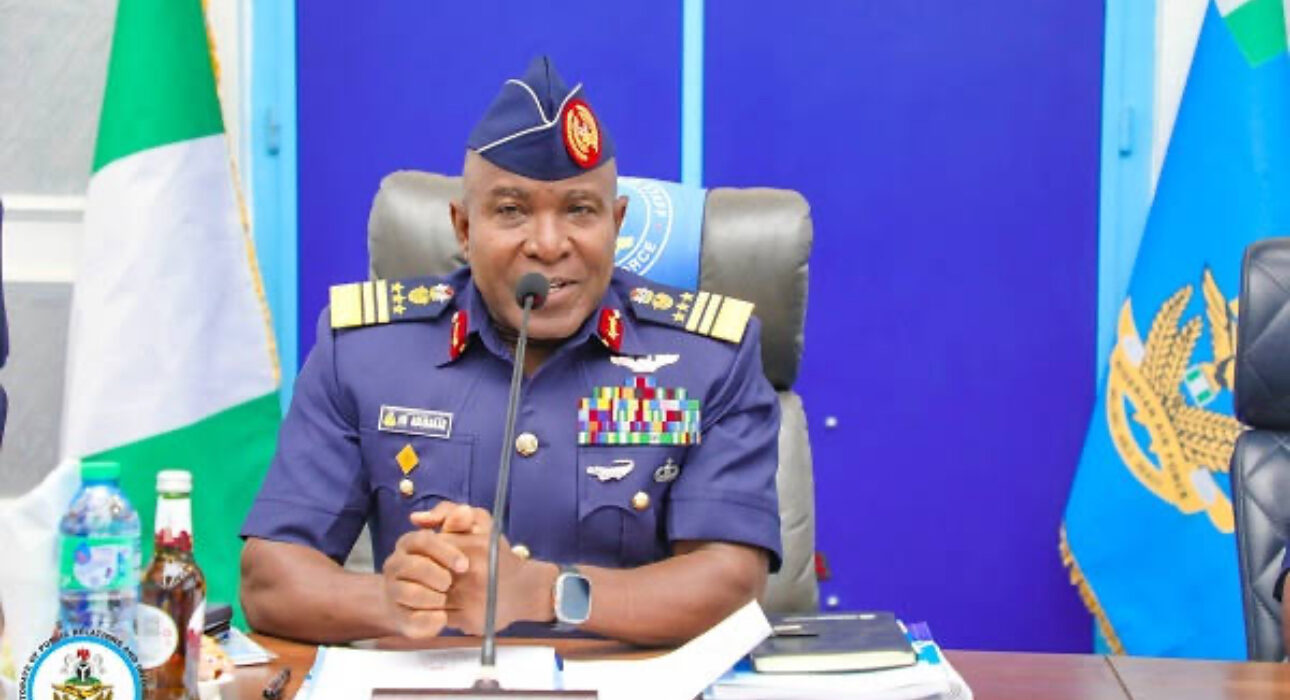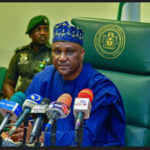Uphold Ethical Standards in Civilian Engagements, NAF Orders Personnel

The Nigerian Air Force (NAF) has issued a directive to all its personnel, urging them to uphold the highest ethical standards in their interactions with civilians, especially during operations and civil-military engagements across the country.
This call was made during a high-level sensitisation workshop organized for newly appointed Civil-Military Relations, Human Rights, and Gender Desk Officers held at the NAF headquarters in Abuja. The initiative, spearheaded by Air Vice Marshal Ibikunle Daramola, Chief of Civil-Military Relations, emphasized the importance of embedding professionalism, accountability, and respect for human rights into the daily conduct of NAF personnel.
Addressing the officers, Daramola noted that in the face of growing public scrutiny and evolving security dynamics, military personnel must go beyond operational excellence and demonstrate a clear commitment to ethical behavior, particularly in communities affected by conflict or military presence.
“Our operations are not only judged by tactical success but also by how we treat the people we are sworn to protect,” Daramola said. “Upholding human dignity must be central to all our engagements.”
The workshop featured lectures and training sessions delivered by experts in human rights, conflict resolution, gender sensitivity, and media relations. Among the facilitators were respected scholars and practitioners including Professor Ehiz Odigie, Dr. Sampson Terwase, and Mr. Peter Mancha.
The sensitisation program included modules on civilian harm mitigation, civil-military cooperation, communication in conflict zones, and observance of international humanitarian laws.
The desk officers were charged with taking these lessons back to their respective commands and ensuring that troops under their oversight are properly guided in their field conduct.
One of the key highlights of the initiative is the reinforcement of the Nigerian Air Force’s Civilian Harm Mitigation Action Plan, which was unveiled alongside the establishment of a Civilian Harm Mitigation and Response (CHMR) Board earlier this month.
The board is tasked with ensuring operational decisions are guided by legal frameworks that prioritize civilian safety and accountability.
The NAF also revealed plans to extend the ethical training beyond headquarters by launching field-based sensitisation tours across all operational theatres. These efforts will be complemented by Quick Impact Projects (QIPs) aimed at strengthening community relations and rebuilding trust in regions impacted by military operations.
“These desk officers are not being trained for theoretical understanding alone,” a senior NAF official said.
“They are expected to be ambassadors of professionalism in the field, serving as both monitors and advisors.”
In recent years, public trust in the military has fluctuated due to alleged human rights violations in certain operations, particularly in regions battling insurgency or armed banditry. With this new push, the Nigerian Air Force is hoping to rebuild confidence and improve the overall reputation of the armed forces as protectors, not aggressors.
The initiative also aligns with wider efforts to integrate gender sensitivity and community engagement into the operational culture of the armed forces, ensuring no group feels marginalized or threatened during military deployments.
As Nigeria continues to navigate complex internal security challenges, the Air Force’s new ethical directive sends a strong message: national security must not come at the cost of civilian dignity and rights.
“The military’s role is not only to defend the nation against threats but also to preserve the values of humanity and justice,” Daramola concluded. “It is through this balance that we will truly fulfill our constitutional mandate.”
With implementation already underway, observers say the NAF’s commitment to human rights and civil-military harmony could become a model for other branches of Nigeria’s armed forces—and perhaps a turning point in reshaping public perception of military engagement in the country.









